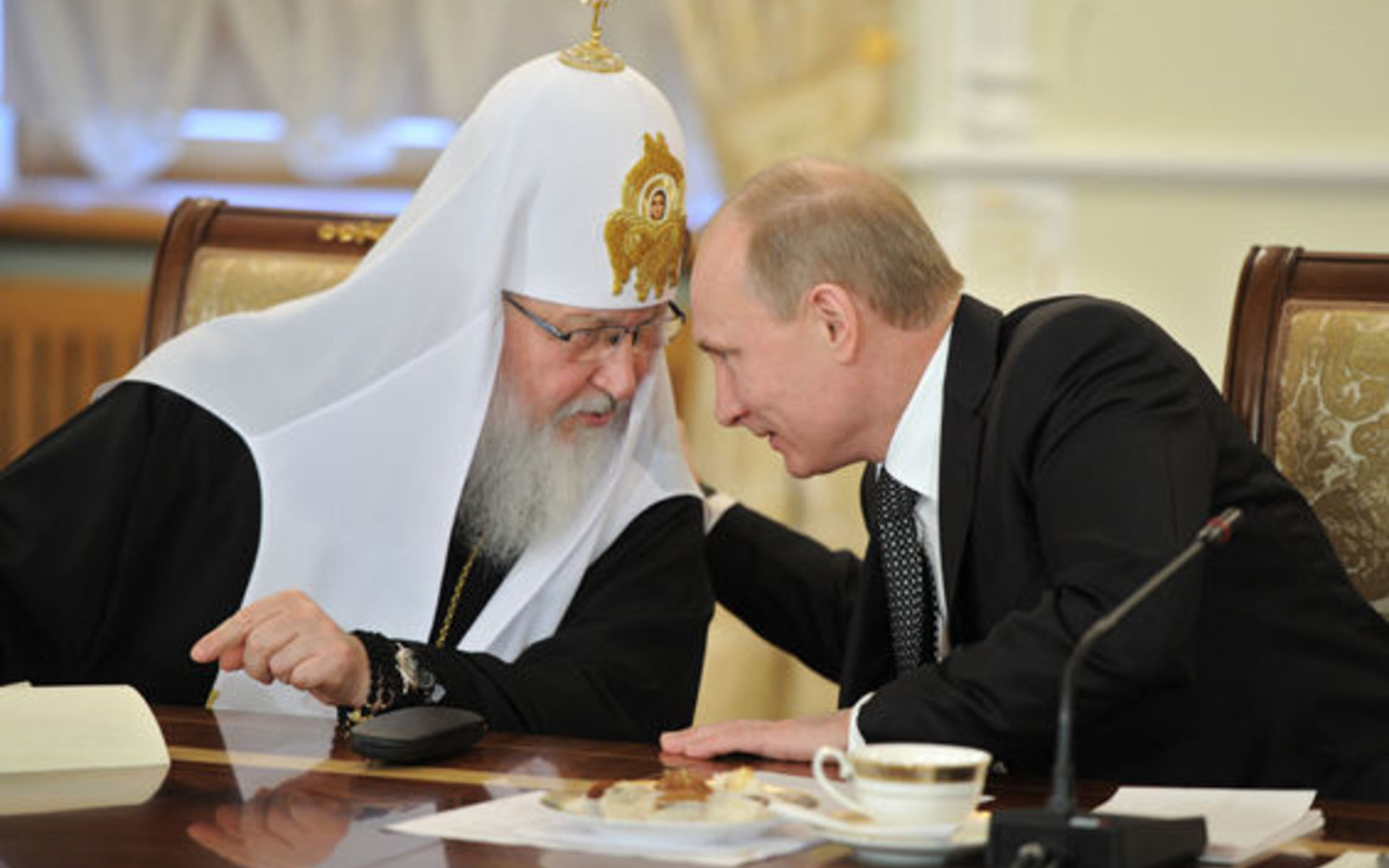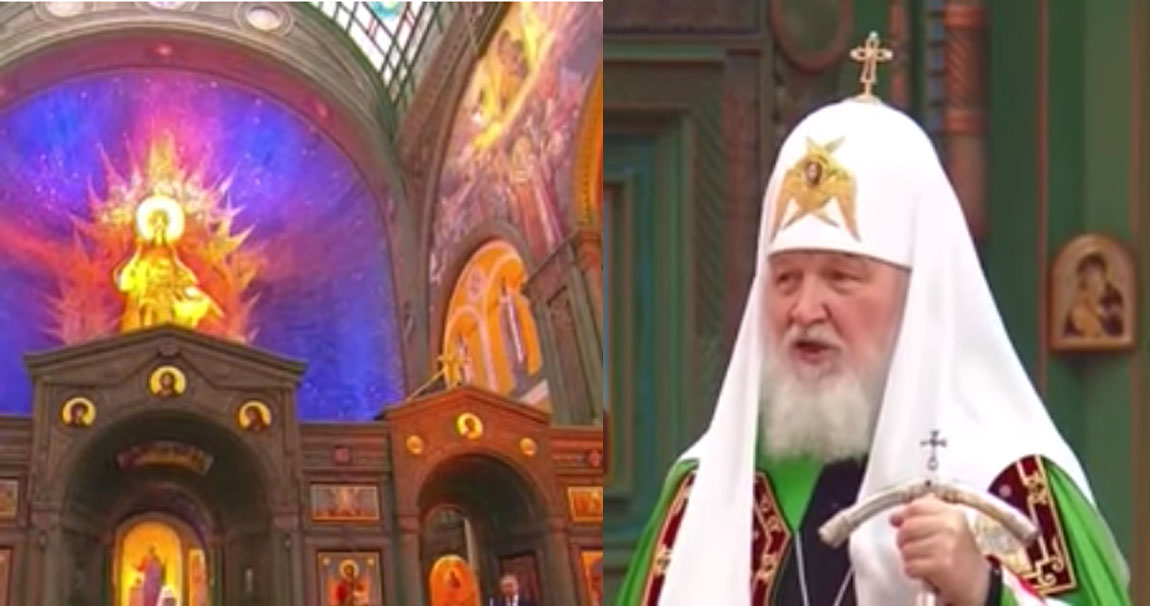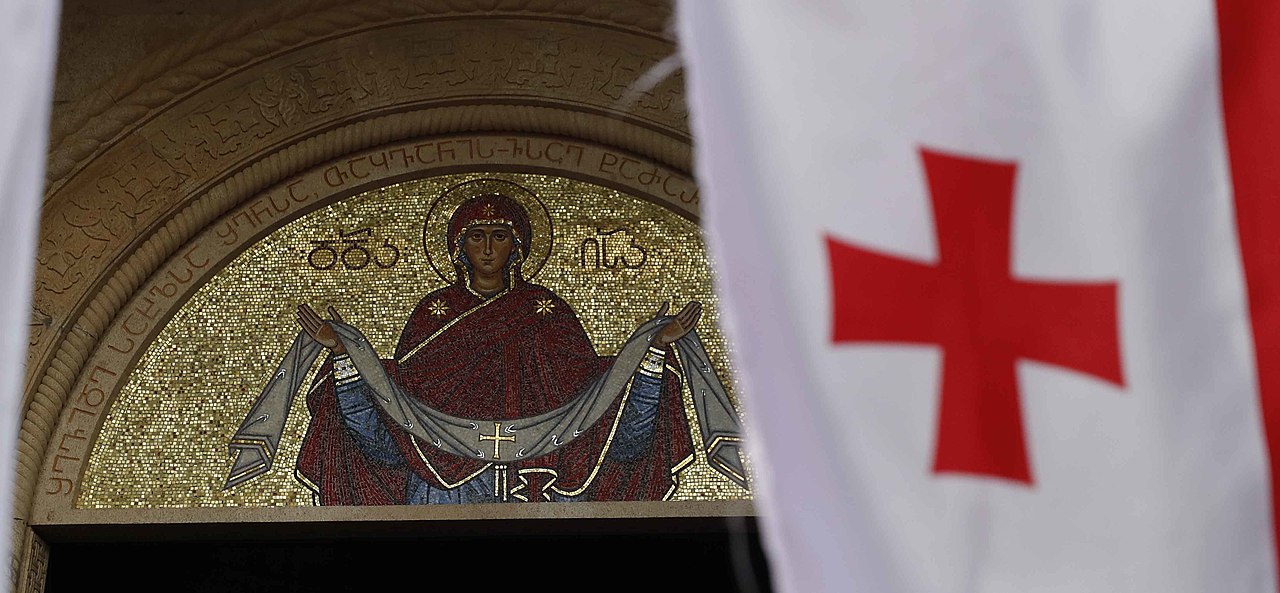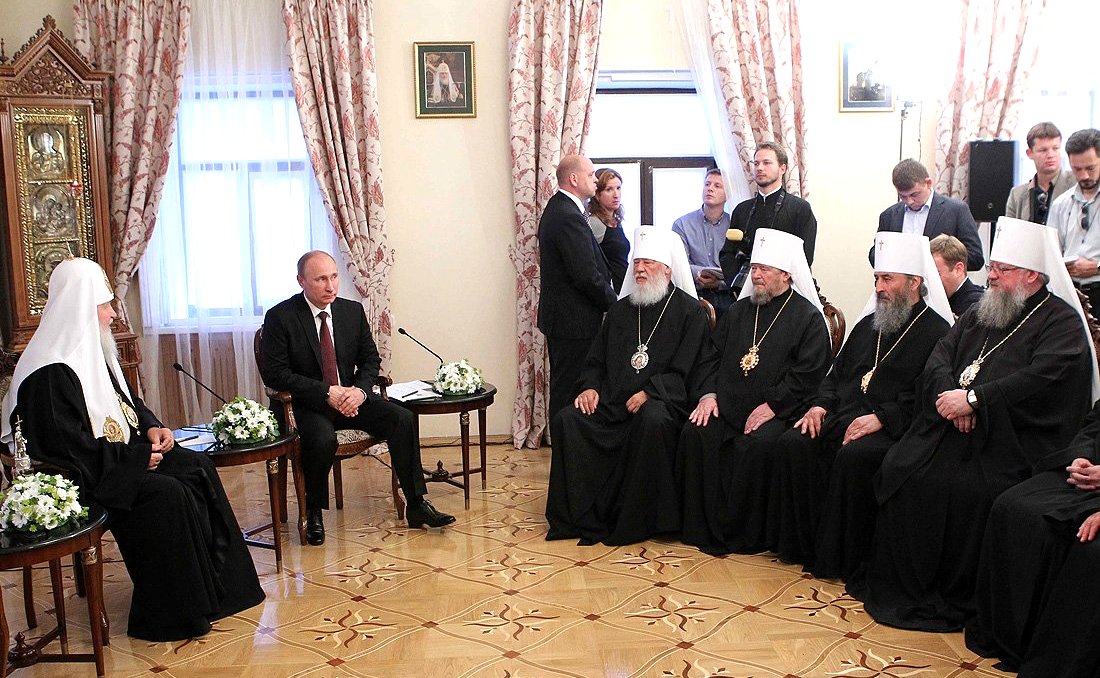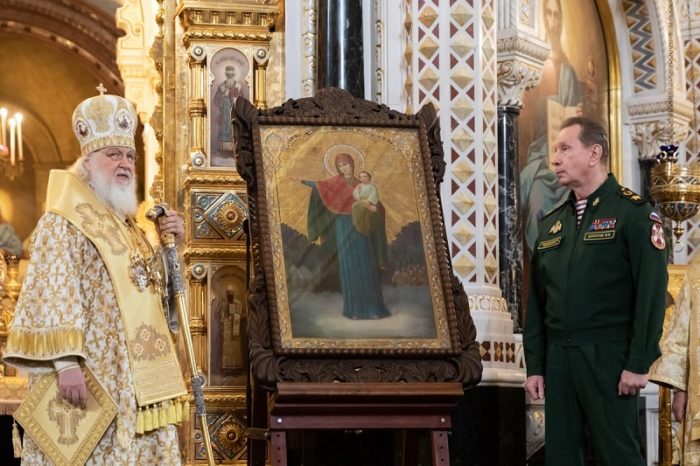Religion and primary Eastern Orthodoxy has been one of the most sensitive issues in Russian-Ukrainian relations, even amid a tangled knot of acute political, economic, and humanitarian contradictions.
Church independence in Orthodoxy mostly follows political independence
Throughout the three centuries that have passed since 1686 when the Moscow patriarchate seized the established in 10th-century Metropolitanate of Kyiv from its weakened Constantinople Mother Church, the Ukrainians have repeatedly attempted to break away from Moscow's ecclesiological dependence.
After Ukraine gained independence in 1991, the subjection of Ukrainian Orthodoxy to the Moscow Patriarchate became unacceptable to large segments of the Ukrainian elite. Although Orthodox theologians have argued convincingly that the Orthodox Church is a single Church and not a confederation or even a federation of Local Churches, the principle of locality remains one of the few undeniable principles within Orthodox ecclesiology.
The autocephaly granted to the Orthodox Churches of Greece, Serbia, Romania, Bulgaria, Poland, Albania, Georgia, the Czech Lands and Slovakia, and formerly to the Kingdom of Moscow, were justified essentially politically: by the formation of a sovereign state by respective nations.
Thus the question of acquiring autocephaly (or restoring autonomy, as in the case of the Estonian Apostolic Orthodox Church) became the focus of church policy in Kyiv, Skopje, Tallinn, and Chisinau as early as the beginning of the 1990s; after 2006, Montenegrin Podgorica joined them as well.
A desire to break with subordination to Moscow
The eagerness to break with ecclesiastical subordination to Moscow in Ukraine has repeatedly intensified as the Moscow Patriarchate has come to terms with its subordinate role as a junior partner of the Russian state and has supported an official turn toward chauvinism, militarism, and the destruction of civil rights and freedoms in Russia itself.
In addition, the role of Russian Orthodoxy as a tool to achieve the tactical and strategic goals of Russian foreign policy was becoming increasingly aggressive.
A special role in this was played by the 16th Patriarch of Moscow and All Russia, Kirill, who was elected Primate of the Russian Orthodox Church (ROC) in 2009. It was Patriarch Kirill who revitalized the concept of the "Russian world” constructed by Russian political technologists and turned it into a geopolitical doctrine.
According to the Patriarch’s construct, the united “Russian world” should “become a strong subject of global world politics, stronger than all political alliances.”
Kirill, to the dismay and confusion of theologians, publicly proclaimed Russian control over Ukrainian Orthodoxy to seemingly be part of Orthodoxy's teachings.
At the same time, the Kremlin blatantly instrumentalized Moscow Patriarchate to legitimize their messianic doctrines and foreign policy claims, declared Orthodoxy “an inseparable part of the effort to assert Russia's original role on the world stage,” and then a key ideological construct in the confrontation with the West.
President Putin himself said that Orthodoxy is closer to Islam than to Catholicism while Russian Foreign Minister Sergey Lavrov said that Russia is returning to its traditional values, which are rooted in Orthodoxy, and as a consequence becomes less understandable to the West than it was during the Soviet times.
The Tomos: a historical moment for Ukrainian Church independence
With the beginning of Russian aggression against Ukraine in 2014, the Moscow Patriarchate justified militarist-chauvinist, anti-Western and anti-Ukrainian discourses of Kremlin propaganda.
ROC’s clerics were directly involved in the occupation of Ukrainian lands, and the priesthood of the Ukrainian Orthodox Church of the Moscow Patriarchate was becoming one of the most organized centers for promoting Russian narratives among those officially operating in Ukraine.
In August 2014, he issued a letter to the Primates of the Orthodox Churches, in which he accused "Uniates and Schismatics" of waging a religious war against "canonical Orthodoxy."
In May 2015, Patriarch Kirill announced that "godlessness is becoming the state ideology of Ukraine."
The Russian invasion of Ukraine and almost unconditional support of Russian foreign policy by the Moscow Patriarchate forced the Ukrainian governmental and ecclesiastical circles to intensify their continuing efforts in gaining independence from the Russian Church.
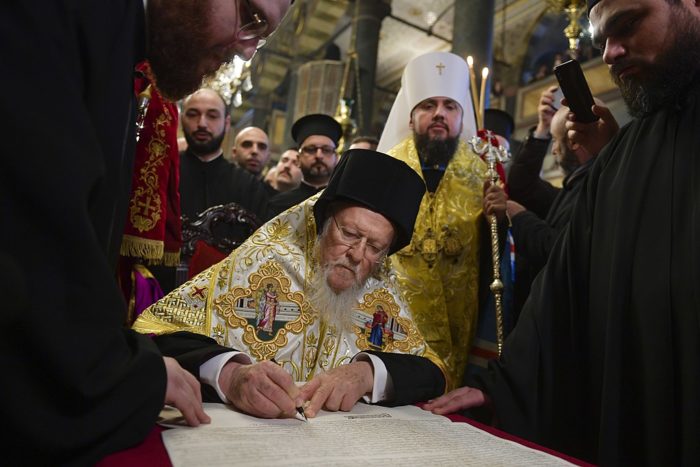
In 2018, a window of opportunity finally opened for a solution to this problem that had been considered intractable. The first among equal in the east Orthodox World Ecumenical Patriarch Bartholomew, who, like his predecessors, had never recognized the legitimacy of the annexation of the Kyiv Metropolitanate by the Moscow Patriarchate in the 17th century, but had abstained from the decisive action on this track for a long time, finally decided to take a bold move.
Shocked by the Russian invasion and unheard of attempts by the Russian state and the Moscow Patriarchate to undermine his influence in the Orthodox world, emboldened by the unanimity of all branches of the Ukrainian government, Patriarch Bartholomew opened the procedure for granting autocephaly to the Orthodox Church in Ukraine through the Tomos.
Tomos ante portas: a short guide to Ukrainian church independence
The efforts of the Russian secret services, intelligence, cybercriminals they control, and diplomacy to prevent Ukrainian autocephaly were unprecedented.
Kirill approves of the war
Patriarch Bartholomew's bestowing of autocephaly to the Orthodox Church of Ukraine on 6 January 2019, which was enthusiastically received by Ukrainian society, was seen by the Kremlin as an extremely painful blow to the entire system of control over Ukraine and became a deep notch in the Russian dictator's hate-filled brain.
Putin returned to this issue more than once, and each time he spared no words to demonstrate his frenzied anger.
Putin also could not avoid this theme in his utterly false Hitler-style address to the Russians on the eve of a large-scale invasion of Ukraine by Russian troops at the end of February 2022.
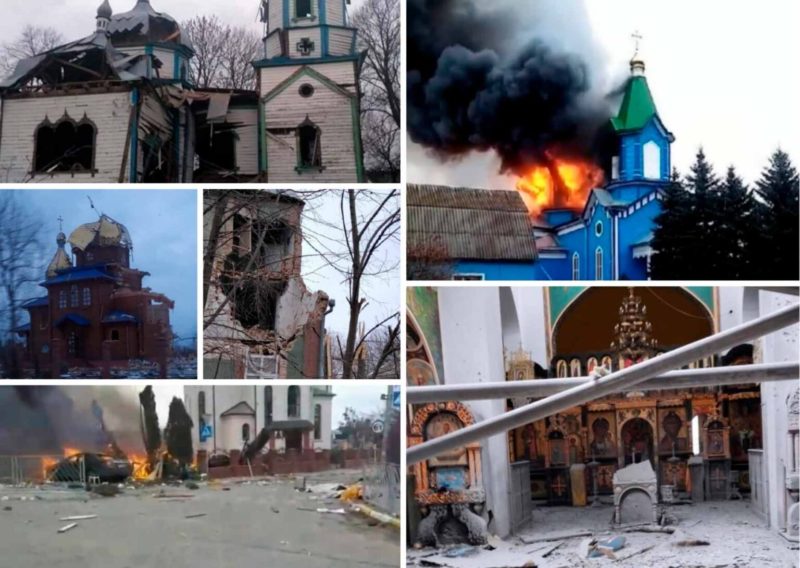
And it is the church buildings of the Ukrainian Orthodox Church of the Moscow Patriarchate, whose leaders before the “great war” could not find the courage to object to any of Putin's insane claims, that suffered the greatest destruction in its very first days.
At the same time, even against the backdrop of the terrible suffering that has befallen Ukrainians since the first days of the invasion, the position of the Moscow Patriarchate deeply shocked those of them who until that time had considered themselves faithful to this Church.
Even Patriarch Kirill's most loyal supporters were stunned by his sermon during the Forgiveness Sunday liturgy.
A week later, the Patriarch blessed Putin's war by presenting an icon of the Virgin Mary to the head of the Russian National Guard and expressing hope for a "quick" victory over Ukraine.
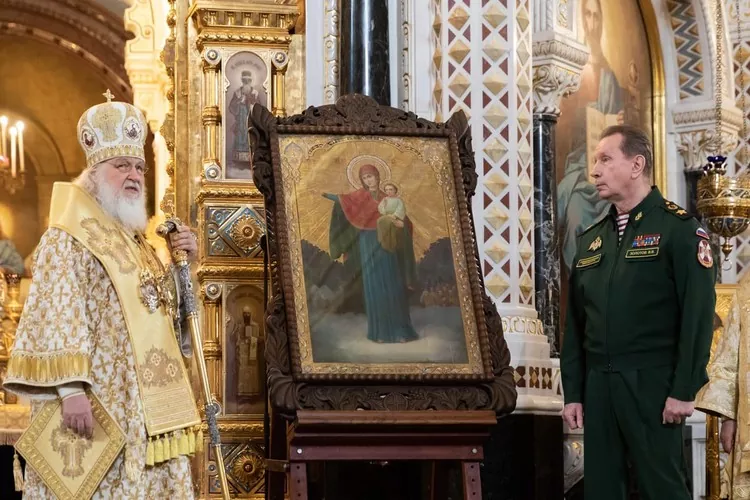
More than five hundred Orthodox theologians, church figures, and professors mostly from the Western Universities signed the “Declaration on the 'Russian World' Teaching,” which states that the Russian war against Ukraine is rooted in a form of Orthodox religious fundamentalist, totalitarian false teaching called Russian world, repeatedly invoked and developed in speeches of President Putin and Patriarch Kirill over the last 20 years. Signatories rejected the “Russian world” heresy and the shameful actions of the Russian government in unleashing war against Ukraine as profoundly un-Orthodox, un-Christian, and against humanity.
Another 286 clergymen of the Russian Orthodox Church issued a call for reconciliation and cessation of the war.
Unlike even in Nazi Germany, where the state's enslavement of the German Evangelical Church brought to life a resisting Bekennende Kirche (Confessing Church), in Russian Orthodoxy, there are no evidences of bishops, clergy, and laity’s rebellion against the Сhurch leadership's flagrant ruptures with Evangelical truth.
Meanwhile, terrified and confused bishops and clergymen of the UOC-MP began, one by one, announcing they would cease commemorating Patriarch Kirill during the liturgy. This, of course, is the least they could do at a time when the Orthodox Church of Ukraine, the Ukrainian Greek Catholic Church, and other, less numerous churches and religious communities called for "prayer and work" to defeat the enemy.
Apparently, the episcopate of the UOC-MP, which bears undoubted responsibility for poisoning its flock in Ukraine with the heresy of the Russian world, is afraid of the possible consequences for itself but thinks little of repentance. The “Princes of the Church” are much more concerned with preserving their corporation.
Therefore, they impose ecclesiastical penalties on priests who have transferred to the Orthodox Church of Ukraine, urging them not to take hasty steps and to decide the fate of their Church sometime in the future, “in a quiet time.” As a “Charter of Protection,” they use President Zelensky's address, where he urged his compatriots to unite in the face of the deadly threat and put aside confessional, linguistic, and other disagreements. And certainly, the leadership of the UOC-MP does not consider for itself joining the autocephalous Orthodox Church of Ukraine, which would be the only proper move both from the moral and political standpoint and from the perspective of the Eastern Orthodox Canon Law.
We do not know right now how church figures who, for eight years, failed to notice the annexation of Crimea and Russian military aggression, boldly demanding peace from Kyiv and never from Moscow, will resolve this problem The only thing that is obvious is that it will be impossible for them to avoid finding a solution, as they have thus been able to do.
It is also clear that Russian Orthodoxy is deeply infected with the cult of militarism, imperial exceptionalism, and the apology of violence, and this infection has spread beyond Russian borders. Most likely, getting rid of the corrode conscience infection would require dismantling the monstrous patriarchal structures that have been firmly embedded into Putin's political-military machinery and a total reestablishment of the entire church organization.
And undoubtedly, the recovery will be a long and tortuous one.
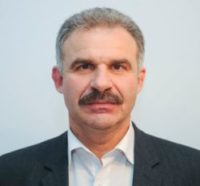
Viktor Yelenskyi is Head Research Fellow at the Institute of Political and Ethnic Studies, National Academy of Science of Ukraine. He authored a great number of books, articles, and essays on religious freedom, religion and politics, and global religious trends. As a Member of the Verkhovna Rada of the 8th convocation he also drafted several Bills on Cultural Heritage, Sea Memorial, Church and State issues, and Creative Industries which successfully went through Parliamentarian voting.
Related:
- Russian World: the heresy driving Putin’s war
- Tomos ante portas: a short guide to Ukrainian church independence
- 39% of Orthodox in Ukraine allied to Ukrainian church, more than twice than to the Moscow church
- Honeymoon over for Orthodox Church of Ukraine as its “creator” goes into schism
- Old wine in new bottles: how bad habits derailed Ukrainian Church unification – interview with Cyril Hovorun
- Making Russia answer for destroying cultural heritage in Ukraine
- A short history of the Ukrainian Church: infographic

